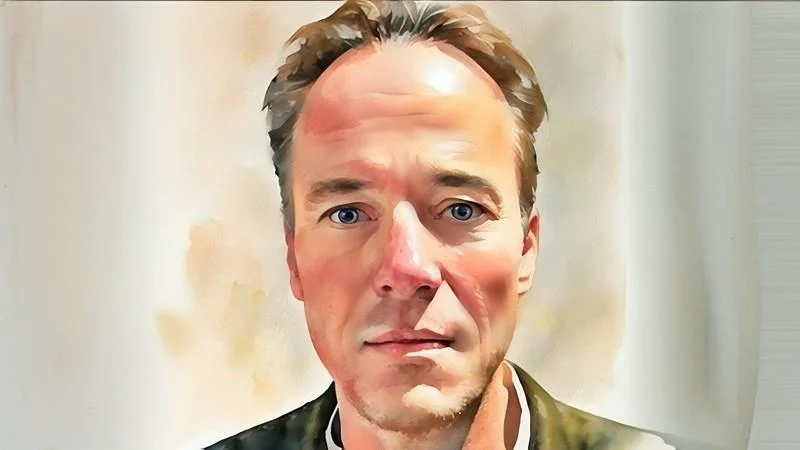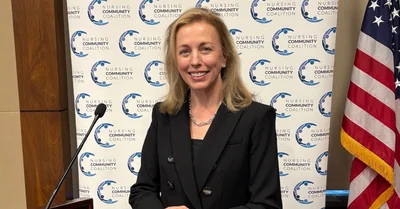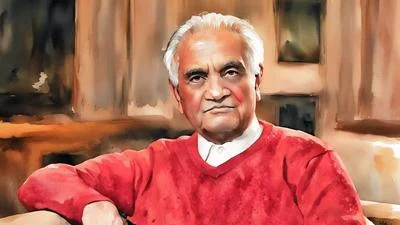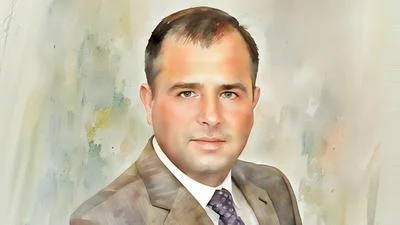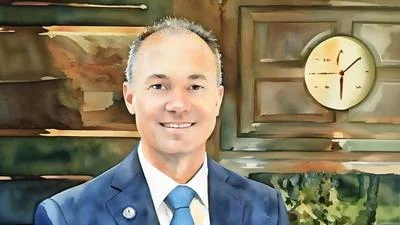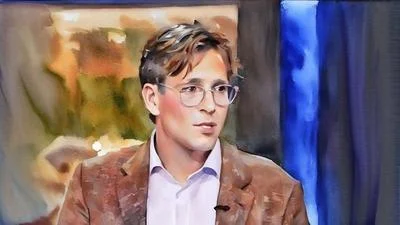An era of transatlantic cooperation is forming, with Germany taking a bigger leadership role. Christian Forstner, Director of the Hanns Seidel Foundation in Washington, D.C., believes the country’s political transition may signal a shift from defense and migration control to economic revitalization.
Forstner previously served in the Foundation’s European and Moscow offices, and as an OSCE election observer in Russia and Ukraine. He studied at the Moscow University of Foreign Languages and speaks Russian. The Hanns Seidel Foundation, which he leads in Washington, is affiliated with Bavaria’s conservative CSU party and engages in research, political advising, and education efforts worldwide.
He describes the new German government under Chancellor Merz as “a new start of German politics in three areas: economy and competitiveness, defense and security, and migration.” Germany’s economy, once an engine of European growth, has stagnated in recent years. Forstner says Merz intends to change that. “Germany is a strong economy,” Forstner says. “We will make Germany’s economy strong again.”
Defense is another priority. “We relied heavily on the U.S. security umbrella,” he says, and now the view is “that’s our core responsibility—to be able to defend ourselves.” Germany has committed to a new 5% defense spending target, divided between equipment acquisition and infrastructure investment. Forstner clarifies that support for Ukraine is not part of this calculation. “It would be misleading to say it’s part of the equation,” he says. Instead, Germany’s security investments represent “a clear political goal to do more on its own.”
Forstner is concerned about the migration into Germany. “Migration has to be controlled. Germany needs border control,” he says. He notes the backlash from “people unhappy with the influx of people who come to Germany uncontrolled, unchecked, unvetted,” and says that an open-border policy has come to an end.
Forstner says the war in Ukraine has catalyzed these shifts. “We cannot just outsource our own security to the U.S.,” he says. “That has to stop and everybody understands it.” He argues that Ukraine’s struggle is tied directly to Europe’s own stability. “It is in our own interests... that Ukraine does not lose this war because otherwise the consequences would be devastating.”
Germany continues to debate sending Taurus missile systems to Ukraine, but Forstner stresses the need for unity and clear objectives. “We don’t want to prolong this war of attrition, but we should clearly announce we don’t want Russia to win and we will never let Ukraine lose,” he says.
He credits President Trump for pushing NATO toward increased defense commitments. “Trump constantly says you have to do more... he deserves full credit for NATO stepping up,” Forstner says. But he also underscores the role of the new German chancellor, praising Merz’s leadership on both defense and economic sanctions.
Sanctions against Russia, according to Forstner, are essential, but only part of the equation. “Sanctions have an impact and they weaken the Russian economy. But do they weaken the Russian economy to a point that the Putin regime will change course? That’s a big question,” he says. “We don’t aim at regime change. What we want from Russia is recognition of the independence and sovereignty of new states.”
He says that a broader international strategy is needed, particularly when it comes to cutting off Russia’s shadow fleet and global energy exports. “We should have a common sanctions strategy between the U.S. and the European Union, but we should engage more to talk to the so-called global South... making clear the case that what happens in Ukraine is way more than a regional conflict.”
At home, Germany’s support for Ukraine remains broad but faces populist pushback. On the far right, Forstner warns of the Alternative for Germany (AfD) party, which “sympathize with Putin for nationalistic reasons” and exhibit strong anti-American sentiment. On the far left, he sees a revival of pacifist sentiment that promotes “dialog, not deterrence.” But under Merz’s leadership, Forstner says, the government is committed to direct support for Kyiv. “We talk to Kyiv directly and not only to Moscow.”
Having lived in Russia during the chaotic 1990s, Forstner recalls how the Russian people were betrayed by the false promise of post-Soviet prosperity. “They hoped for both prosperity and freedom, and they got neither,” he says. “That’s why they said we need a strong man on top–and they voted for Putin.”
Despite the devastation and lack of a current peace process, Forstner finds reason for hope. “Look at the beginning—most experts assumed it’s a matter of days until the Russian forces occupy Kyiv. But they couldn’t,” he says. “It’s now the fourth year. They’re still holding the line. That’s a sign of optimism.”
Forstner calls for renewed transatlantic cooperation in defense and economics. “Together–the U.S. and Europe–we are stronger in a world which is partly hostile to us,” Forstner says. “We want to make Europe successful, not weakened.”
